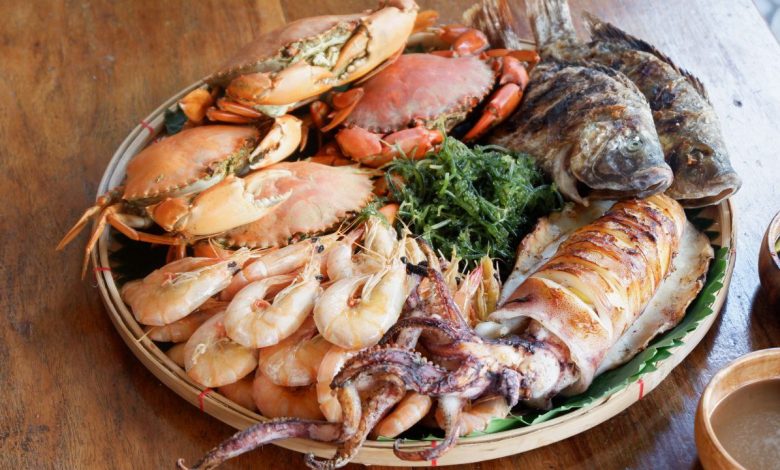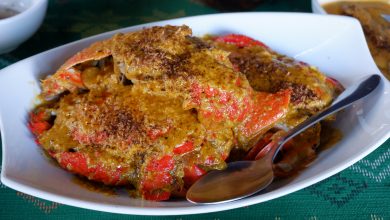
Forbidden Food: Sinful Delicacies For Filipino Faithful
Some of us belong to religious affiliations while some choose to serve God in their own personal ways. No matter the case, there are customs and traditions performed and followed by certain religious groups that inspire colorful conversations among non-members. A good example of this is the avoidance of particular forbidden food by members. Thus, you might now be thinking, what are those, and why are they avoiding them?
Put your palate on hold, because that’s exactly what we’ll be discussing in this article. Let’s begin.
The Iglesia ni Cristo and Blood
One of the most well-known traditions of the Iglesia ni Cristo is their not eating of blood. Yes, you read that right. Any food mixed with blood is a no-go for them. Hence, a pork blood stew or dinuguan is a famously forbidden food for them. You might think it ridiculous or funny, but they take it very seriously. Especially when you find out that they do this because the not-eating of blood is actually written in the bible.
The short version of it is that blood is life and you shouldn’t eat life mixed with meat. Any member who will eat blood will be considered an enemy and will be removed from the church.
While that seems quite ominous, it is what’s contained in the Holy scripture. Iglesia ni Cristo members take this to heart because time and again, it is being retold during their congregations. They believe strongly in what the bible says and they follow it to the letter.
The Haram of the Muslims
For the uninitiated, Haram is an Arabic term that means “forbidden.” Acts that are haram are prohibited in the religious texts of the Quran and the Sunnah. If something is considered haram, it remains prohibited no matter how good the intention is, or how honorable the purpose is. In Islamic law, dietary prohibitions are said to help with the understanding of divine will.
Muslims are prohibited from consuming flowing blood. Meats that are considered haram, such as pork, dog, cat, monkey, or any other haram animals, can only be considered lawful in emergencies when a person is facing starvation and his life has to be saved through the consumption of this meat.
All carnivores with fangs such as lions, tigers, wolves, dogs, cats are haram. All birds with talons such as hawks, falcons, vultures, eagles are haram. Domesticated donkeys are haram. Animals that are commanded to kill such as mice, scorpions, and snakes, are haram. In fact, all reptiles, amphibians, and rodents are haram. Any animal that has died before being slaughtered in the Islamic manner, or has not been properly slaughtered, is haram. Animals that are slaughtered in the name of anyone but Allah are prohibited.
Nutmeg, asafoetida, vanilla extract, and gelatin are also forbidden, either due to being intoxicants containing alcohol or other forbidden items such as pig parts.
Anything made from a human part is also a forbidden food for Muslims, as one would expect.
The Seventh-day Adventist Diet
For Seventh-day Adventists, their dietary pattern is based on the biblical Book of Leviticus. It emphasizes whole plant foods, such as legumes, fruits, vegetables, nuts, and grains, and discourages the consumption of animal products as much as possible.
Some Adventists are vegan, excluding all animal products from their diets. Others follow vegetarian diets that include eggs, low-fat dairy, and fish. Others choose to eat certain meats and additional animal products.
The Seventh-day Adventist diet discourages using products that the Bible considers “unclean,” like alcohol, tobacco, and drugs. Some Adventists also avoid refined sweeteners and caffeine because they fit under the definition of forbidden food to them.
Many non-Adventists familiar with the diet consider its proven health benefits, especially the plant-centric versions!
The Mormon’s Health Code
Lastly, the Latter-day Saint health code, known as the Word of Wisdom, prohibits the consumption of or indulgence in alcohol, tobacco, coffee, tea (green tea or its variants, including black and oolong tea), illegal drugs, and any other harmful or addictive substances. The Mormon way is more on proscribed drinks than forbidden food.
Additionally, the Word of Wisdom recommends a vegetarian diet rich in grains, except in times of famine. Meat isn’t explicitly prescribed but it is asked to eat sparingly and with thanksgiving.
The health code is based on Mormon teachings that our bodies are a gift from God. Mormons refer to their bodies as temples because they house our spirits, also created by God.
Integral to Mormon belief is that treating the body with respect is one way to show our love for God and our gratitude for His gift to us.
Forbidden or not, we should adopt the Mormon way of treating our bodies with the utmost respect. Always remember that our body doesn’t come with spare parts!




